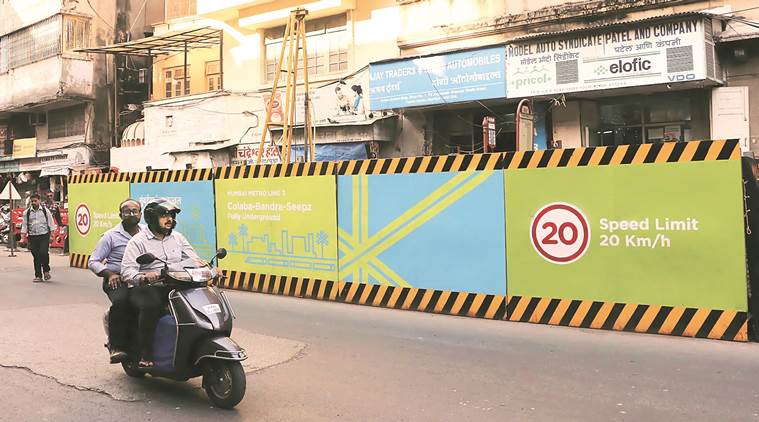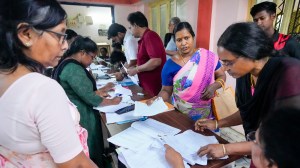Stay updated with the latest - Click here to follow us on Instagram
Metro 3 need of the hour: MMRC to Bombay HC
The affidavit was in reply to a Public Interest Litigation filed in court seeking a stay on the construction work for the 33-km Colaba-Bandra-SEEPZ Metro line III during night hours on account of the inconvenience caused to residents due to the noise generated.
 MMRC also said it was trying its best to control the noise generated due to the construction work and that it was also holding meetings with residents in South Mumbai to understand their concerns and seek cooperation.
MMRC also said it was trying its best to control the noise generated due to the construction work and that it was also holding meetings with residents in South Mumbai to understand their concerns and seek cooperation.
The Mumbai Metro Rail Corporation Limited (MMRC) on Thursday filed an affidavit in the Bombay High Court stating that the Mumbai Metro 3 project was the “need of the hour” as the public transport system in the city was “heavily overloaded and congested.” The affidavit was filed through Advocate General A A Kumbhakoni and advocate Shardul Singh. It further stated that the city of Mumbai alone had a private vehicle density of 1,417 vehicles per kilometre.
“A brief reading of several studies, surveys and reports in relation to the public transport in Mumbai indicates that as on date 2,150 trains run through the city and carry nearly 75 lakh people per day… During peak hours, trains do not have space even for a pebble. The public bus system also hardly has pace during peak hours,” reads the affidavit.
The affidavit was in reply to a Public Interest Litigation filed in court seeking a stay on the construction work for the 33-km Colaba-Bandra-SEEPZ Metro line III during night hours on account of the inconvenience caused to residents due to the noise generated. In August this year, a bench headed by Chief Justice Manjula Chellur had prohibited the MMRC from carrying out any construction or ancillary activity for the project between 10 pm and 6 am. In its affidavit, however, the MMRC has sought that the stay order be vacated.
“If the stay granted by this court is not modified or vacated, then the project timeline will be delayed by several years. This will result in increasing the cost of the project and imposing additional financial burden on the exchequers,” MMRC said. It also said it was trying its best to control the noise generated due to the construction work and that it was also holding meetings with residents in South Mumbai to understand their concerns and seek cooperation.
In another petition filed by the trustees of J N Petit Institute, opposing the Metro 3 work alleging damage to its heritage building because of the drilling work, the High Court directed the MMRC to either consider the remedial measures suggested by the court-appointed committee or propose its own measures.
Last month, the High Court had directed that a committee be constituted to study the effects of the tunnelling work undertaken for Metro construction on the buildings and suggest ways to continue with the work without damaging the buildings in the area around the site.
The committee comprising structural engineers and experts from IIT Bombay submitted a set of suggestions in the High Court on Thursday.
The suggestions included providing additional support to vulnerable portions of the affected buildings in the area, more vigorous monitoring of vibrations caused due to drilling work, providing supporting props for buildings, etc.







